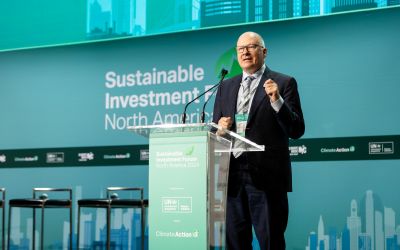Climate change and emerging markets after Covid-19
The world stands to lose nearly half of its potential economic output by the end of the century. That’s the shortfall we face if we fail to make further progress on climate change.

The world stands to lose nearly half of its potential economic output by the end of the century. That’s the shortfall we face if we fail to make further progress on climate change.
But this is only an average. Emerging markets are at risk of faring even worse given their particular vulnerabilities to rising sea levels, drought and slumps in agricultural output.
It’s a bleak picture. But there are also reasons for hope.
The scientific consensus on climate change is becoming widely accepted, and governments, individuals and businesses have started to act. With the benefit of some clear thinking and careful planning, much more can be done. Particularly across the emerging world.
Everywhere, human ingenuity, technological advances and the understanding that comes from experience and education are all positive forces that will drive efforts to mitigate climate change and to help us adapt to its effects.
This paper by Professor Cameron Hepburn and his team at the University of Oxford Smith School of Enterprise and the Environment offers a deep and broad analysis of the risks and opportunities emerging economies – and the world more generally – face from climate change. Their insights are based on the latest economic and climate modelling techniques.
It is research we at Pictet Asset Management are proud to have sponsored. The dynamics this report describes will play a critical role for investors over the coming decades. The pace at which governments act will determine how capital should best be allocated, be it regionally or across asset classes.






